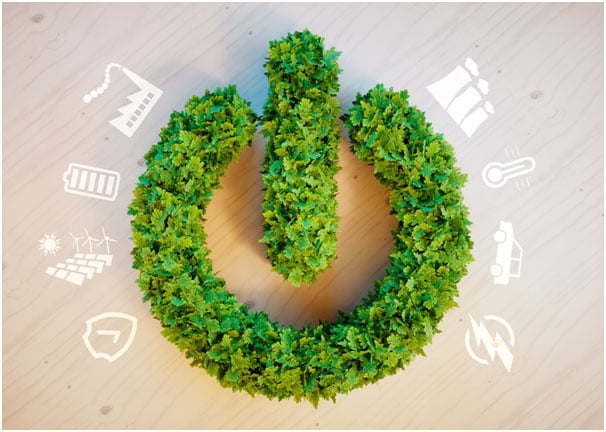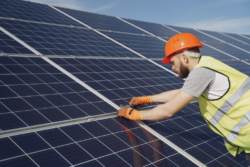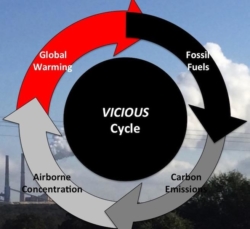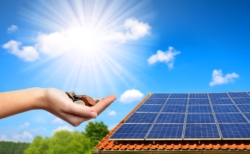What is the Cleanest Source of Energy?
With the increasing urgency of climate change, more and more people are looking for clean, renewable forms of energy. Traditional fossil fuels have two major drawbacks as a form of energy: they produce hazardous by-products, including carbon, and they are non-renewable.
Renewable resources offer an appealing alternative to fossil fuels. Not only is it difficult, or impossible, to deplete these resources, they tend to produce significantly less pollution and carbon, making them the ideal choice for future energy production.
Some of the most common sources of clean energy include solar, wind, geothermal, and tidal. Of these, the cleanest, by far, is wind. A study in 2013 conducted by the National Renewable Energy Laboratory found that wind produced significantly less greenhouse gas over its lifetime than fossil fuels and other renewable energy sources, including solar energy.
The study took into account every aspect of wind power, including the manufacture of wind turbines, processing, maintenance, and decommissioning. The study also found that a wind turbine had already produced enough energy in six months of function to power its manufacture, installation, and maintenance. Simply put, wind energy produces up to 80 more times energy than it uses.
Advantages of Going Green
Apart from the significant advantage of not contributing to climate change, going green is an excellent choice for most homeowners.
Save money
One of the significant aspects of going green is reducing the amount of energy you use. Common ways of doing so include insulating your home better and installing solar panels and switching to gas stoves. All of these have an impact on your electricity consumption, which in turn affects your electricity bill.
Many of the energy savings from going green are quite small, but they all add up in the end. For instance, using cold water instead of hot water for your laundry will save you around $20 per year. Replacing your lightbulbs with CFL or LEDs can save approximately $75 per year. Once you start adding up your savings, you’ll find that you can save up to hundreds of dollars with almost no effort at all.
One of the biggest barriers to going green is the initial cost. Luckily, many states have initiatives in place to help fund solar panel installation and other eco-friendly renovations. Many Ohio green energy groups have started campaigning for the state to join others in subsidizing and encouraging homeowners to generate renewable energy.
If you’re considering solar panels, make sure to speak to Connecticut electricity suppliers to see which ones offer the best net-metering policy. Net-metering is a system where any excess energy you generate goes into the grid, and you receive credits for it. You can then use those credits to buy extra power when you need it.
Many providers offer 1:1 net-metering, which means you get credits equal to the ctelectric rates, reducing your energy bill by however much energy your system generates.
Self-sufficiency
Producing your own energy through solar power can be incredibly liberating, especially when you live in an area with frequent brownouts. While some people opt to live entirely off the grid on the solar energy they produce, even small changes can ensure that you’ll weather any infrastructure changes with ease.
Increase home value
Many new homeowners want eco-friendly features, such as solar panels or water-saving appliances and fixtures. If you install these in your home today, you can expect an excellent return on your investment, as well as getting all the instant money-saving benefits.
Increased durability
Since many eco-friendly houses and fixtures use natural materials, they tend to be more robust than traditional brick and mortar houses. Technology improvements have resulted in natural-looking materials that require less maintenance and last longer than their traditional counterparts.
Better health
Going green means you generate less pollution and carbon dioxide. This change results in cleaner air, which can help minimize conditions like asthma and allergies. Overall, living in an eco-friendly, modern house will have you feeling better and healthier than ever before.
Easy Tips to Go Green
Going green doesn’t mean you have to install solar power and start living off the grid. Even small changes can help save the environment while saving you some money at the same time.
Switch to energy-saving lightbulbs
Incandescent bulbs are notoriously inefficient and produce more heat than light. Modern CFL and LED lightbulbs are much more energy-efficient and can last much longer than traditional ones. While they may be more expensive in the short-term, you can save up to $75 per year on electric bills if you switch out all your bulbs.
Save water
Many state water managers expect to run out of water in the next decade. Most households in the United States waste hundreds of gallons of water without even thinking about it. There are many small things you can do to save water in your daily routine:
• Turn off taps when brushing your teeth or washing your hands
• Limit yourself to five-minute showers and skip the bath
• Only do full loads of laundry
• Fix leaking faucets and pipes ASAP
• Replace your current shower and faucets with WaterSense products
Lower your energy footprint
Many household devices use energy even when they’re not in use. Typically TVs, gaming consoles, and monitors will use power during standby mode to ensure quick start-up. Microwaves and ovens continually draw power for their clock displays. These small, continuous power draws add up, and one study estimates that the US spends up to $1.9 billion on wasted electricity.
The easiest way to manage these energy vampires is to plug them into power strips, which you can conveniently turn off when not in use.
Switch to nature-friendly products
Apart from switching to eco-friendly cleaning products, also consider buying your own recyclable shopping bag that you can reuse. Speak to your moving services while moving to ensure that they use reused or recycled boxes. Avoid using bubble wrap or packing peanuts, and opt for old newspapers or clothes to protect your delicate items instead.







